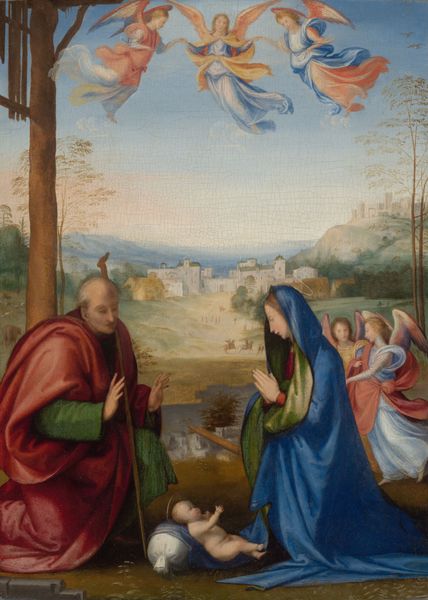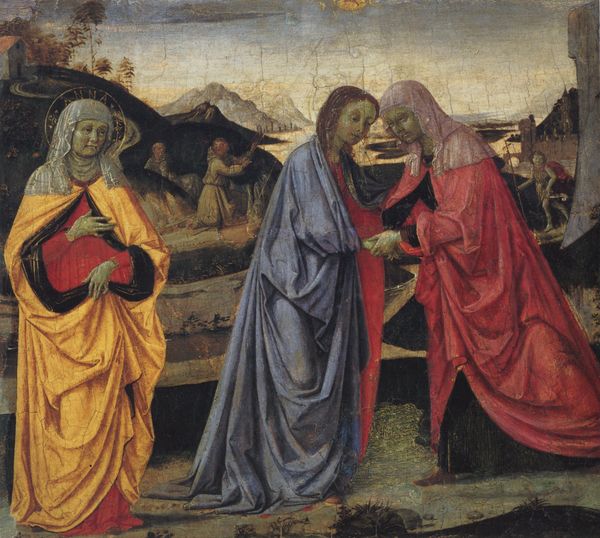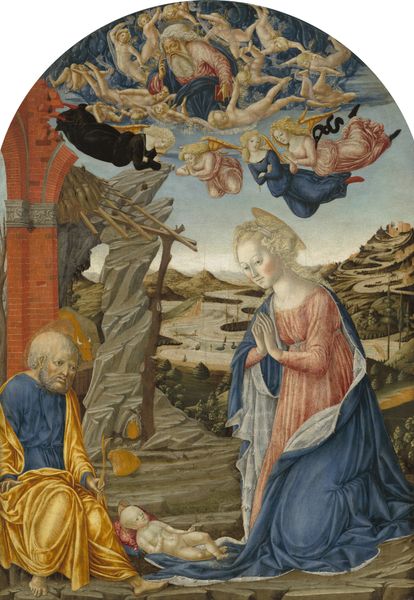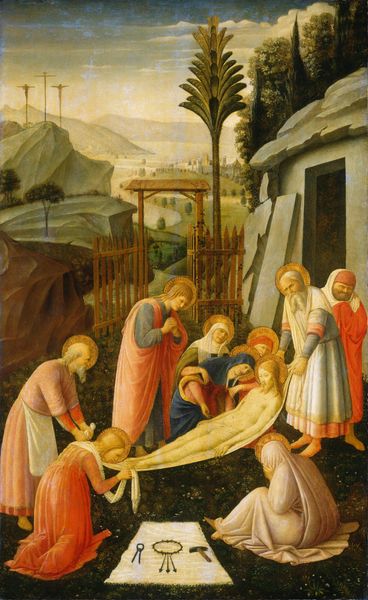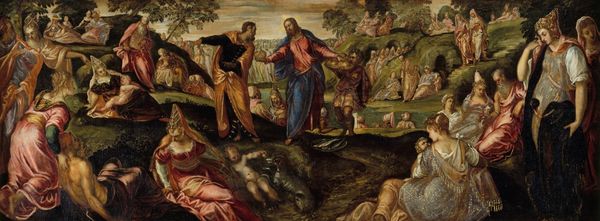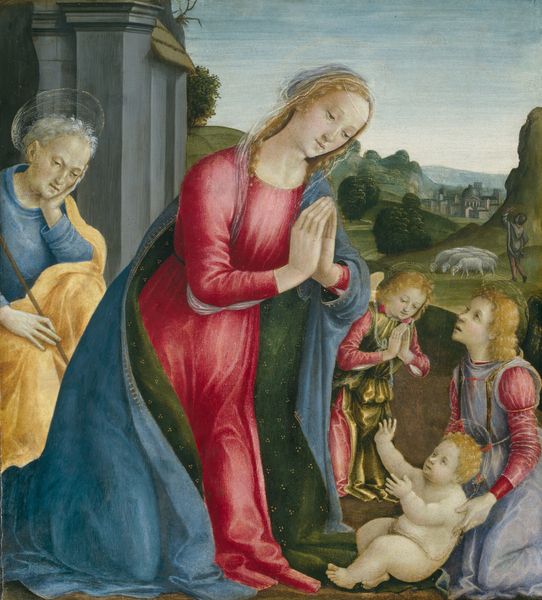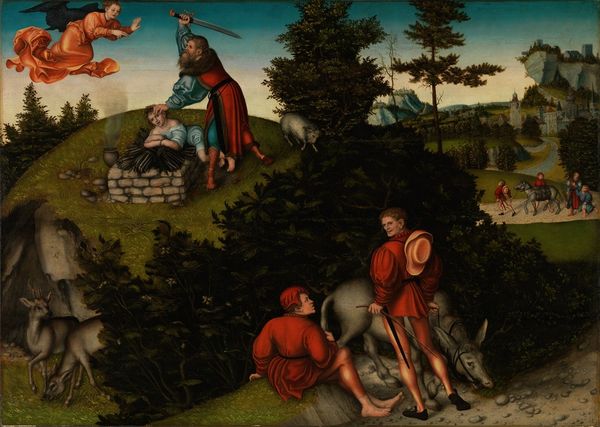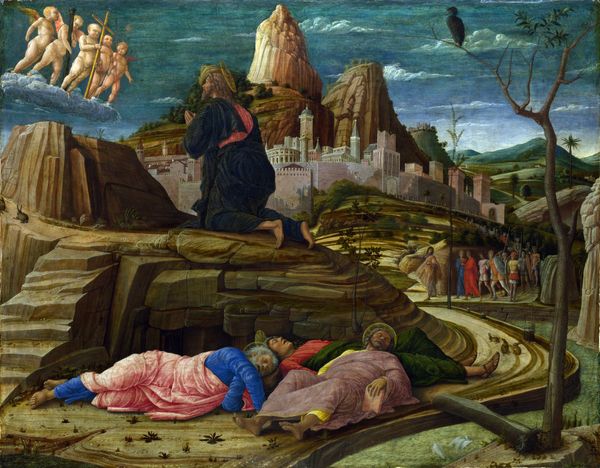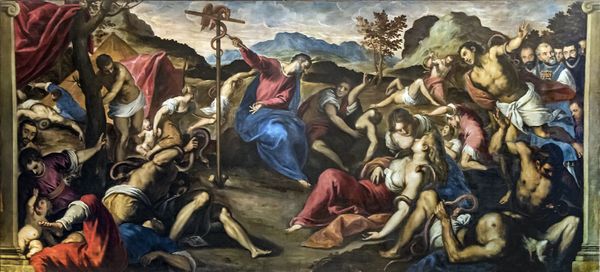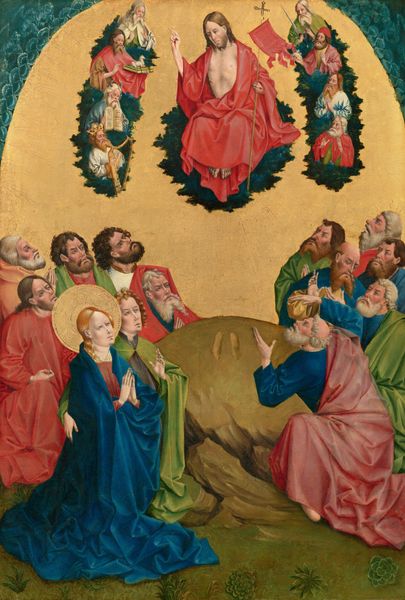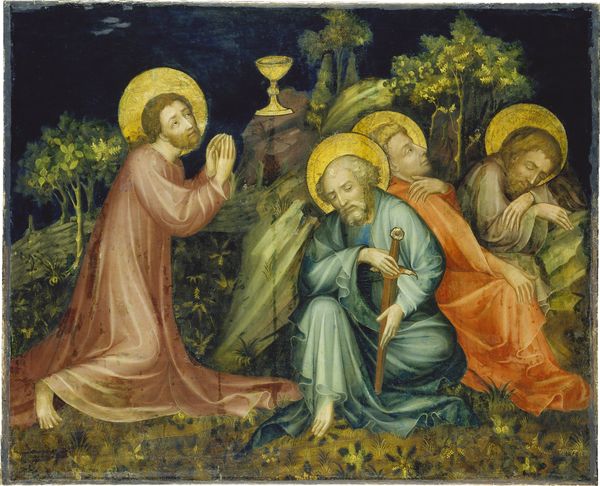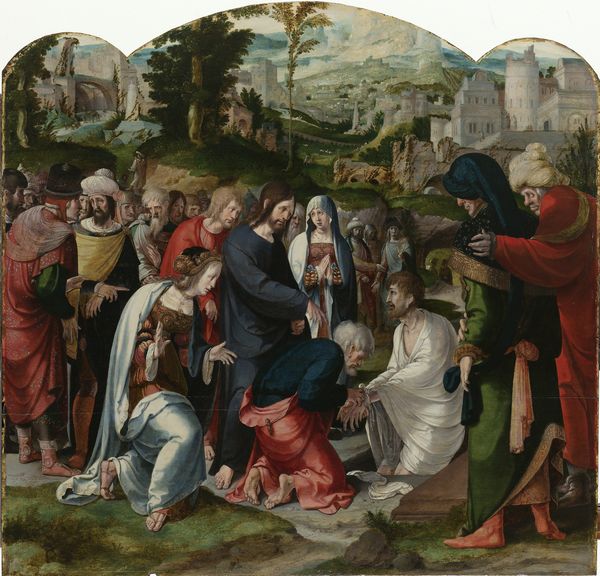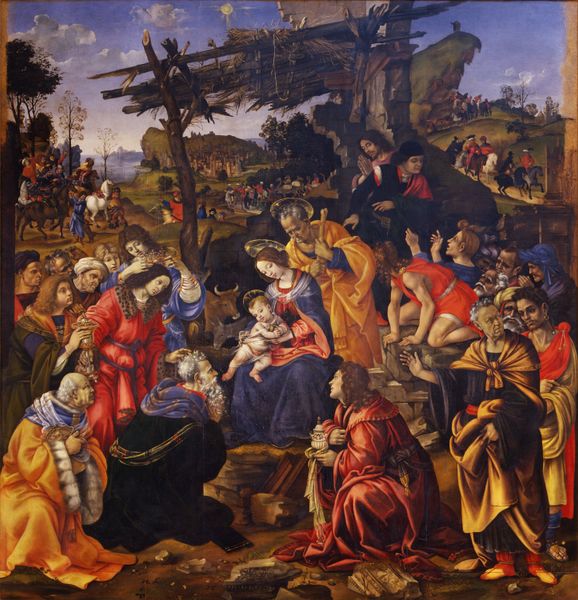
tempera, painting, oil-paint
#
narrative-art
#
tempera
#
painting
#
oil-paint
#
landscape
#
figuration
#
oil painting
#
naive art
#
history-painting
#
italian-renaissance
Dimensions: painted surface: 42 × 46.7 cm (16 9/16 × 18 3/8 in.) overall size: 43.3 × 48 cm (17 1/16 × 18 7/8 in.) framed (with four other paintings): 59.69 × 283.21 × 5.4 cm (23 1/2 × 111 1/2 × 2 1/8 in.)
Copyright: National Gallery of Art: CC0 1.0
Benvenuto di Giovanni painted "The Agony in the Garden" during the early Renaissance. We are presented with Christ kneeling in prayer, an angel offering him a chalice, while his disciples slumber nearby. The chalice, a potent symbol, signifies the cup of suffering that Christ must drink. This motif echoes through art history, from ancient Greek libations to medieval depictions of the Eucharist. Its meaning transforms, yet the underlying theme of sacrifice persists. Consider the role of the cup in earlier mystery cults, or in classical Greek art. This symbol resonates deeply, tapping into our collective memory of suffering and redemption. The disciples’ sleep, a recurring motif, can be traced back to the allegories of the soul in antiquity, or even further back. This highlights our shared human vulnerability. These symbols, charged with emotion, speak to us on a subconscious level. The symbols in this painting reveal a non-linear progression, their meanings shaped by time, culture, and our own deeply held beliefs.
Comments
No comments
Be the first to comment and join the conversation on the ultimate creative platform.
